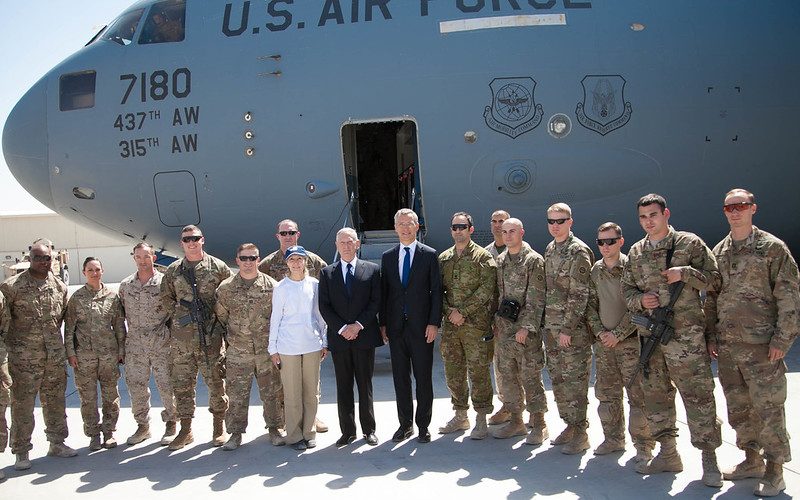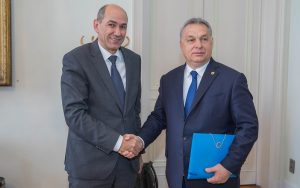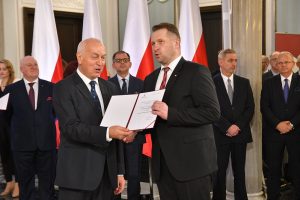By pulling out of Afghanistan, Joe Biden has put an end to 20 years of U.S. troop involvement in Afghanistan and thus to Washington’s “forever war” in the mountainous, landlocked country. The U.S. presence in Afghanistan was never about nation-building: Washington’s primary objective was always to reduce the terrorist threat to the United States and its allies. The Biden Administration has subsequently sought to fend off concerns from prominent GOP Republicans, pulling out already 90 percent of U.S. forces.
In closing the 9/11 foreign policy chapter, President Biden now clearly intends to shift U.S. strategic priorities to managing the growing strategic threat posed by China. U.S. preeminence in the Indo-Pacific region, in particular, is increasingly challenged by China’s rising military and naval power. In his first foreign speech, President Biden labeled China the most potent geostrategic threat to U.S. global leadership. With U.S. operational forces scheduled to leave Afghanistan on August 31, 2021 – the Biden administration will subsequently seek to invest those forces in U.S. military bases in the Indo-Pacific region, while leveraging its political capital across democracies in the region.
Still, by withdrawing without any preconditions, this strategic decision leaves the democratically elected government in Kabul struggling to hold on to power. This tragedy seems to be unfolding more quickly than many imagined, as hard-line Taliban fighters have ramped up their bloody campaign across the country. With Afghan government soldiers abandoning their posts without a fight – the Taliban are reportedly closing in on the capital, tripling the territory they control each week. The withdrawal of US and NATO troops is therefore likely to fuel an assortment of security and geostrategic consequences contrary to Euro-Atlantic interests.
Heightened terrorist threat
The volatile security backdrop in Afghanistan is bound to energise terrorist groups and embolden them to reset and exploit the new pockets of operational space left by the absence of US and NATO forces. This security implication has been echoed by senior US security advocates – in particular CIA Director William Burns. Leaving Afghanistan not only limits the ability of the United States and NATO to deploy a forward presence option; it also makes intelligence gathering and surveillance considerably more difficult.
Among the terrorist groups likely to benefit from the imminent departure of Western forces is al-Qaeda. The Taliban, in particular, has long been associated with al-Qaeda in Afghanistan – notably harbouring the group’s founder, Osama bin Laden, after the terrorist network’s responsibility for the September 11, 2001 terrorist attacks on America. Despite the former Trump Administration signing a historic peace deal with the Taliban last year, there are signs that the militant group has continued to maintain close ties with al-Qaeda. A growing body of evidence gathered by the UN monitoring team in Afghanistan reveals that the militant group has been complicit in allowing the terrorist entity to remain active in the territory it controls. While al-Qaeda no longer bears much resemblance to the terrorist network led by bin Laden, its remaining members nevertheless strive to develop a global reach – this backdrop is likely to become more potent under a Taliban-led Afghanistan.
NATO members ought to be equally concerned about the enduring threat posed by the Islamic State in Afghanistan. The terrorist group’s Afghan avatar, IS-Khorasan’s operational influence, has continued to grow after the fall of the group’s core territory in Iraq and Syria and remains an attractive proposition to all those seeking to prevent the Taliban from coming to power. IS-K has notably an extremely solid base of support in Kabul and among middle-class Tajiks.
In laying the foundations for a foothold in Afghanistan, the Afghan offshoot of IS has claimed responsibility for several high-profile attacks. During the Afghan parliamentary elections in October 2018, IS-K unleashed several visible and disruptive attacks targeting, among others, universities and various educational centres across the Afghan capital – to prevent the development of a Western-educated younger generation. The terrorist entity also has an explicit ambition to engage in transnational attacks against the West and its interests. As Europe has been particularly hard hit in recent years by coordinated ISIS attacks from Iraq and Syria – NATO will naturally need to keep a close eye on the extent of the terrorist outfit’s growth, to prevent its largely localised activity from going global.
Geopolitical void
The departure of US and NATO troops leaves a clear power void in Afghanistan. There is an increasing likelihood that Beijing and Moscow will seek to fill some of the economic, diplomatic, and security void left by the US-led NATO withdrawal. Russia has long viewed Central Asia as part of its privileged sphere of influence and subsequently sees itself as the primary guarantor of security and stability in the region. In showcasing this vision, Moscow has over the past few years leveraged its regional military presence, particularly in Kyrgyzstan and Tajikistan – as a response to the deteriorating situation in Afghanistan.
The Kremlin above all fears that an upsurge in violent extremism emanating from Afghanistan could heighten radicalism in neighbouring states and subsequently threaten the Russian territory. Afghanistan notably shares a long border with several friendly Central Asian countries: Tajikistan, Uzbekistan and Turkmenistan – all three former Soviet republics enjoy a visa-free regime with Russia. The Russian military base in Kant, Kyrgyzstan, has consequently been boosted by the transfer of unmanned aerial vehicles and Orlan-10 multipurpose drones. With the Taliban taking one base after another from the Afghan army, the Kremlin is seeking assurances from the militant group’s political wing that it will not commit to promoting Sharia law in the region and will remain committed to warding off IS-K from power. Moscow will nevertheless seek to leverage its military intelligence coordination with its Central Asian counterparts to ensure that the Taliban’s political agenda remains exclusively confined to the Afghan territory.
For its part, China is quietly moving to capitalise on the geopolitical gains from the departure of Western troops. The Chinese Communist Party has already moved swiftly to actively engage Kabul in the construction of the Peshawar-Kabul highway, which would link Pakistan to Afghanistan and make Kabul a participant in China’s massive infrastructure and investment plan: the Belt and Road Initiative. These strategic gains are likely to prevail with the Taliban in power: the militant group’s spokesman, Suhail Shaheen, has notably spoken publicly in favour of long-term Chinese economic investment in Afghanistan. Beijing will also welcome the commitment of the Taliban to refrain from confronting China in its internal affairs: notably the sensitive case of the Uyghurs in Xinjiang province. If the militant group remains true to its word, there is a strong possibility that the Chinese military could gain access to the Arabian Sea via Pakistan.
At this juncture, India is likely to lose significantly after having invested nearly $1 billion in economic development projects and democracy in Afghanistan. The disastrous consequence of a China-Pakistan nexus, which seeks to support the Taliban and weaken Delhi’s grip on Kashmir, is likely to weaken India’s regional strategic influence. To minimise this strategic dynamic, Delhi is likely to use its participation in the US-led quadrilateral platform and its strategic ties with Britain and France to channel global opinion on the dangers to democracy and international security of a China-Pakistan-Taliban nexus in Afghanistan.
China’s growing influence in Central Asia, however, could raise suspicions in the Kremlin that the Chinese Communist Party is seeking to eclipse Russia’s historical regional influence. After Russia’s annexation of Crimea and the war in Donbas in 2014, relations between Moscow and Beijing have deepened through trade and defence cooperation. In recent years, China has increased its economic leverage in Central Asia – but has also sought to expand its military-security presence through arms sales and military bases, in order to safeguard its ongoing investments and infrastructure projects. With common interests and agendas characterising the China-Russia relationship – in particular contesting against US primacy and the rules-based international order – China’s growing ties to the Taliban and its increasing economic clout in Central Asia could add a rare point of friction to their relationship.
All in all, without boots on the ground: Washington and NATO risk seeing the terrorist threat from Afghanistan increase and revisionist powers expand their strategic clout. Beijing stands to benefit from the Taliban power – which runs counter to Western interests.
Sources AFP. (2021) “With Afghan pullout, US ditches ‘forever wars’ ”, AFP, July 7, 2021. Aris, B. (2021) “Kremlin holds Afghan peace talks with Taliban in Moscow”, bne Intellinews, July 12, 2021. Biden, J. (2021) “Remarks by President Biden on America’s Place in the World”, The White House, February 4, 2021. Bruggeman, L. (2021) “US troop withdrawal invites ‘significant risk’ of terrorism resurgence in Afghanistan, CIA director warns”, ABC, April 15, 2021. Centre for Strategic & International Studies. (2018) “Islamic State Khorasan (IS-K), Centre for Strategic and International Studies, November 9, 2018. Chulov, M. (2019) “The rise and fall of the Isis ‘caliphate’ ”, The Guardian, March 24, 2019. De Luce, D., Dilanian, K & Yusufzai, M. (2021) “Taliban keep close ties with Al Qaeda despite promise to U.S.”, NBC, February 17, 2021. Dubinov, A, (2018) “Reflecting on a Quarter Century of Russia’s Relations With Central Asia”, Carnegie Endowment for International Peace, April 19, 2018. Eurasianet. (2020) “Tajikistan: Secret Chinese base becomes slightly less secret”, Eurasianet, September 23, 2020. Gabuev, A. (2021) “As Russia and China Draw Closer, Europe Watches With Foreboding”, Carnegie Moscow Center, March 19, 2021. Haider, S, F-E. (2021) “Beijing just can’t wait for the U.S. to get out of the way”, Daily Beast, July 4, 2021. Holland, S. (2021) “Biden says Afghans must decide own future; U.S. to leave on Aug. 31”, Reuters, July 9, 2021. Jaafari, S. (2020) “Afghans mourn the loss of young lives in ISIS attacks”, The World, November 4, 2020. Jardine, B & Lemon, E. (2020) “Kennan Cable No. 52: In Russia’s Shadow: China’s Rising Security Presence in Central Asia”, Wilson Center, 52, Washington D.C. : United States NDTV. (2021) “Taliban Says It Sees China As A “Friend” Of Afghanistan: Report”, NDTV, July 10, 2021. Noorzai, R, (2020) “Afghan Government Says Taliban Maintaining Ties With Al-Qaida”, VOA, November 6, 2020. Osman, B. (2020) “Bourgeois Jihad: Why Young, Middle-Class Afghans Join the Islamic State”, United States Institute for Peace, June 1, 2020. Putz, C. (2020) “UN Report: Taliban Maintains Ties to Al-Qaeda”, The Diplomat, June 2, 2020. Roggio, B. (2021) “Taliban advances as U.S. completes withdrawal”, FDD’S Long War Journal, July 12, 2021. Sakhi, N. (2021) “How Russia, China, and Iran will shape Afghanistan’s future”, New Atlanticist, June 18, 2021. TASS. (2020) “Latest drones to arrive for Russia’s air base in Kyrgyzstan by year-end”, TASS, June 22, 2020. Trofimov, Y & Dengin, C. (2021) “Afghanistan’s Taliban, Now on China’s Border, Seek to Reassure Beijing”, The Wall Street Journal, July 8, 2021. Wagner, C. (2009) “Promotion of Democracy and Foreign Policy in India”, SWP Research Paper, Berlin: Germany.








Excellent article, easy flou and nice langage
The Chinese rôle is unlikely to last long as Taliban will have to adhere their Islamic agenda…I see initial approachment followed by return of western interest back .Taiwan know v well that China can’t rehabilitate their negative reputation as Beijing itself is in need of some rehab ..The outlook is going negative towards China ,on negotiations remain between the Americans and nato with the Taliban that will provide a good platform of communication